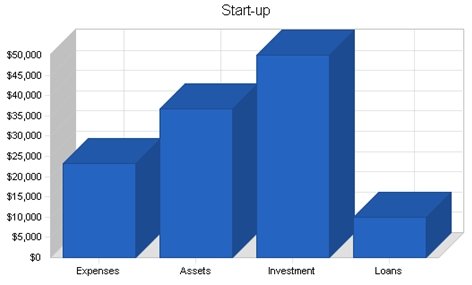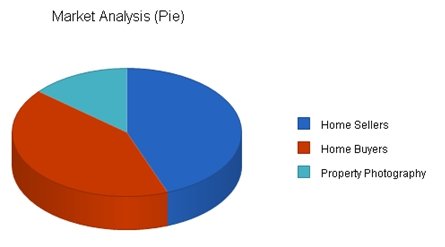The Conceptual Framework for the Analysis
This paper proposes the establishment of facility management firm that can offer professional counsel on the sales of real estate in Dubai. The target will be to deliver services that can connect the sellers and buyers where all pay for the services delivered (Emmett & Biddle, 2010).
This aspect implies that the sellers pay commissions to this company in order to facilitate management and sales of the real estate (Blackwell, 2008). There will be licensed agents to provide services to the two transacting parties. This company will be owned by several investors as well as an inventor. In a bid to create an overlay insight of the core operating principles of the company, the costs targeted for the company start up are listed below.

Figure 1: Start up (Li & Zhang, 2011)
The customers will list their real estates in an internationally accessible network of sellers and buyers through highly skilled agents. In a bid to facilitate this outcome, the agents will get commissions, 24/7 access to office, webpage, marketing ads, and full brokerage support among others. On the other hand, the buyers will be able to inform the agents about their sales’ requirements via a comprehensive interview (Panacek, 2008).
The Key Success Factors for this Business Idea
The strengthening economy of Dubai has elicited attention to the real-estate demands where many people need to purchase homes (Sachdeva, 2009). This company can take advantage of these market variations in order to grow with the industry (Collis & Hussey, 2009).
The company may develop a marketing strategy to notify people through the social media and mass media about the present of these real estates and the company. The first key aspect to develop within the market is a powerful brand that people cannot exempt. The other success factor will be the market segmentation based on their capabilities to sell and follow up the process.
The sellers will be one class of segmentation whereas the buyer will make the other. Another category will include the people who are willing to lease their property in respect to their regulations (Grant, 2010). The company will set funds to boost training, market the brand name, and update its goals regularly.

Operating Model & Framework
The company sales will involve listing of the sellers and applying the marketing tactics in order to seek clients. Furthermore, it will develop a way of locating and watching homes in respect to the specifications of the buyers which is inclusive of relocating the clients from one location to the other (Grewal & Levy, 2010).
Clients relocating to regions beyond this company’s coverage will be advised to visit the relevant firms with good relations. New properties will also be listed prior to search of individuals willing to lease under their program. Once the property has been listed on the company’s marketing platform, the agents are allowed to seek connections for sales and use a support program to reach the clients (Hisrich, Peters & Shepherd, 2013).
Operation Management
The brokers of the company will possess the authority to sponsor the incoming listing of real estate agents as stipulated by the license of brokerage. The joining agents will be admitted for training and enlightenment about the prevailing list, photography and other vital documents (Alkhafaji & Aslin, 2013).
The training will be updated progressively as changes develop within the system. The company will target to attain 15 licensed agents during its preliminary operations. Therefore, there will be no employee working for the company but rather contractors working under commissions. The commissions of licensed agents may be set at 3% on either side segment of buyer or seller. The company will receive 25% of this commission.
In essence, an agent who manages to buy and sell a property will manage a commission of 6%. This form of management is deemed fair as it meets the purpose of the mission. The management of real estate company follows a unique strategies approached by many researchers as the most effective (Jenster & Hussey, 2001).
The brokerage firm acts a link between an agent, seller and buyer. All these three parties are liable to the company’s terms and conditions in order to facilitate convenient transactions. The operation management of this company can have roles of monitoring the activities and behaviours of these parties and rectifying the issues that may arise. In essence, the brokerage firm must be able to control people using rules, penalties, commitments, promotion and classifications in order to create a competitive outcome.
Model of Stakeholders and Clients Relationships
The clients and stakeholders will be connected by the need to lease, buy, and/or sell a property. The first interaction between the client and stakeholder involves arresting issues that may arise in the process of purchasing and listing. Essentially, the main target of these relationships will be to satisfy the clients within all possible limits. The first client is the seller who seeks listing of their property under the company.
As the first clients, the company must ensure that these basic resources owned by the individuals remains under their watch. Dissatisfaction may trigger clients to change the firm managing the property. Furthermore, these client are the most relevant when marketing the brand of the company as their presence marks the presence of the business. The buyers are the second vital elements of the business model as they facilitate the attainment of the organizational goals.
After a property has been sold, the company appears as a reliable entity in selling them which dictates the future preferences by other such sellers. Satisfaction must be ensured in order to prevent clients from tainting the company image. The final relationship involves the agents who attend the requirements of sellers and buyers as well as bring them to the company. A company that offers the best commissions have high chances of being preferred by the agents when making sales.
Facility Management Scope, Enhancement and Innovation
The facility management scope will be restricted to the four mentioned entities incorporating selling, buying, leasing, and referring of properties. In a bid to meet these entities of the business model, the company will develop establish a commission based agent program that can list and find clients with different needs regarding real estates.
A company must also enhance its brand by marketing through such available channels as mass and social media (Mangold & Faulds, 2009). As the business grow and becomes competitive, other tactics must be developed to foster change and boost the revenue earned by the company.
References
Alkhafaji, A & Aslin, R 2013, Strategic management: Formulation, Implementation and Control in a dynamic environment, The Haworth Press, New York.
Blackwell, E 2008, How to prepare a business plan, 5th edn, Kogan Page, London.
Collis, J & Hussey, R 2009, Business research: a practical guide for undergraduate & postgraduate students (3rd ed.), Palgrave Macmillan, Basingstoke, Hampshire.
Emmett, R & Biddle, J 2010, Research in the history of economic thought and methodology a research annual, Emerald, Bingley, UK.
Grant, R 2010, Contemporary strategy analysis, 7th edn, John Wiley & Sons, Hoboken, NJ.
Grewal, D & Levy, M 2010, Marketing, 2nd edn, McGraw-Hill Irwin, Boston.
Hisrich, R, Peters, M & Shepherd, D 2013, Entrepreneurship, McGraw-Hill/Irwin, Boston.
Jenster, P & Hussey, D 2001, Company analysis: determining strategic capability, Wiley, Chichester.
Li, Y & Zhang, Q 2011, “The Application of Principal Component Analysis on Financial Analysis in Real Estate Listed Company”, Procedia Engineering, vol. 15, pp. 4499-4503.
Mangold, W & Faulds, D 2009, “Social media: The new hybrid element of the promotion mix”, Business Horizons, vol. 52 no. 4, pp. 357-365.
Panacek, E 2008, “Survey-based Research: Performing the Survey”, Air Medical Journal, vol. 27, no. 2, pp. 64-66.
Sachdeva, J 2009, Business research methodology, Himalaya Pub. House, Dubai.